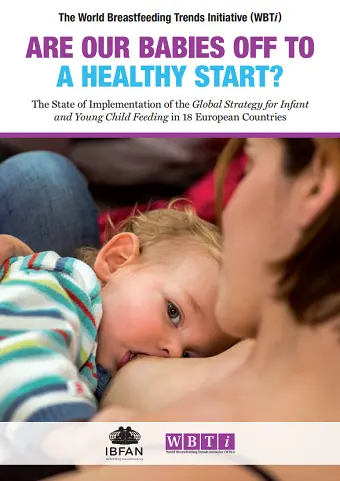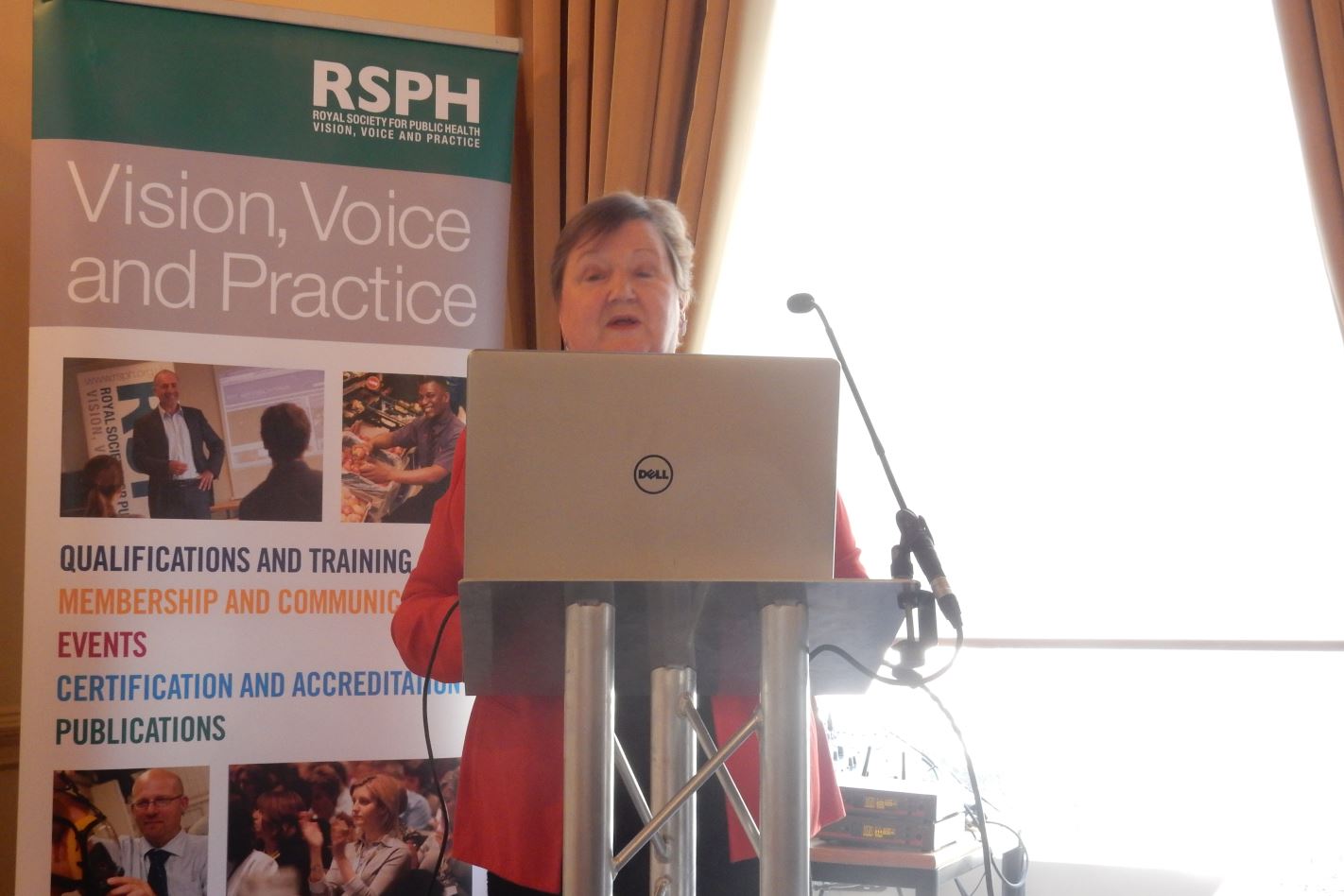Families need joined up and integrated breastfeeding support services throughout their whole feeding journey, according to experts speaking at a conference hosted by the Institute of Health Visiting, Royal Society for Public Health and the World Breastfeeding Trends Initiative UK (WBTi) at the Royal Society for Public Health on 19 April.
However, a new survey by the Institute of almost 800 health visitors found that in the past 2 years 28% reported that their ability to support breastfeeding mothers had decreased, and 28% weren’t confident that other members of their teams, nursery nurses or peer supporters would be able to support mothers when they couldn’t. This will be in part due to the fact that:
- 50% of those surveyed reported recent cuts to breastfeeding support groups;
- 54% reported cuts to breastfeeding support specialist services; and
- 51% reported cuts to peer support programmes.
When asked what the health visitors felt were the most common reasons why mothers stop breastfeeding before they plan to, of the HVs surveyed:
- 64% reported it was due to the attitudes amongst people around the breastfeeding mothers;
- 58% felt that another issue was a lack of professional support;
- 57% that breastfeeding doesn’t have a high enough national profile;
- 44% that there is a lack of motivation to continue; and
- 34% felt there is a lack of partner support.
These issues and more will be explored at this national conference (Breastfeeding: a public health priority) with speakers including: Dr Russell Viner (President of the Royal College of Paediatrics and Child Health) and Dr Natalie Shenker from the Hearts Milk Bank. Professor Amy Brown from Swansea University will also be presenting her latest research on the impact of breastfeeding on maternal mental health.
Dr Cheryll Adams CBE, Executive Director of the Institute of Health Visiting, said:
“Once again we quantify the devastating effects of the cuts to public health budgets which started in 2015. We know that this situation will worsen up until 2020. Such cuts are so counterproductive to the public’s health.
“Giving every baby the best possible start in life has many benefits for their health throughout the life course. Breastfeeding is particularly beneficial, as a protective factor for an individual’s future health.”
Shirley Cramer CBE, Chief Executive, RSPH, said:
“Making sure all families have access to the support they need during the critical early stages of a child’s life is an urgent health inequalities issue, yet ongoing cuts to public health budgets are hampering the capacity of health visitors to deliver that support and undermining the public’s health.
“The numerous and well-documented health benefits of breastfeeding, including its role in combatting childhood obesity, mean it is critically important that we strive to improve stubbornly low breastfeeding rates across the UK.
“Breastfeeding can be challenging for many mothers and we must ensure we are proactively working to cultivate an environment and culture where all breastfeeding mothers are fully supported in their communities.”
The WBTi UK report (2016) incorporates the UNICEF UK Baby Friendly standards and recommends:
Integrated services in the community should include:
- basic health professional training
- additional social and peer support including the voluntary sector
- access to specialist lactation support for complex cases
- Baby Friendly Initiative accredited community settings such as Children’s Centres
Clare Meynell, WBTi Joint Coordinator, said:
“We see health visitors as being the lynchpin of such community support. However, many mothers need more time and practical “one to one guidance” to get breastfeeding off to a good start. Every health visiting area should also have an associated trained peer support system to support new mothers through the common ups and downs of life with a new baby.
“In addition, some mothers with complex circumstances will require an access pathway to specialist support, such as a lactation consultant.
“Future families need a warm chain of support services with skilled guidance to support their feeding journey from start to finish. That means all the way through pregnancy, birth, home from hospital, in the community and back to work. All of us have a responsibility to ensure the chain remains unbroken with a wide range of support in place for mothers and babies.”
According to calculations in the Lancet and research by UNICEF UK, stronger integrated breastfeeding support could actually save the NHS over £48 million a year, and result in a boost of billions to the UK economy in increased cognitive ability across the whole population.
Breastfeeding is a public health priority, and an investment in every child’s future. It is essential that effective support services and skills are commissioned and well integrated into existing services, to avoid families falling through the gaps.
Breastfeeding: a public health priority conference takes place in London on 19 April – for more information
Follow the day’s proceedings on Twitter and hashtag #breastfeeding2018





